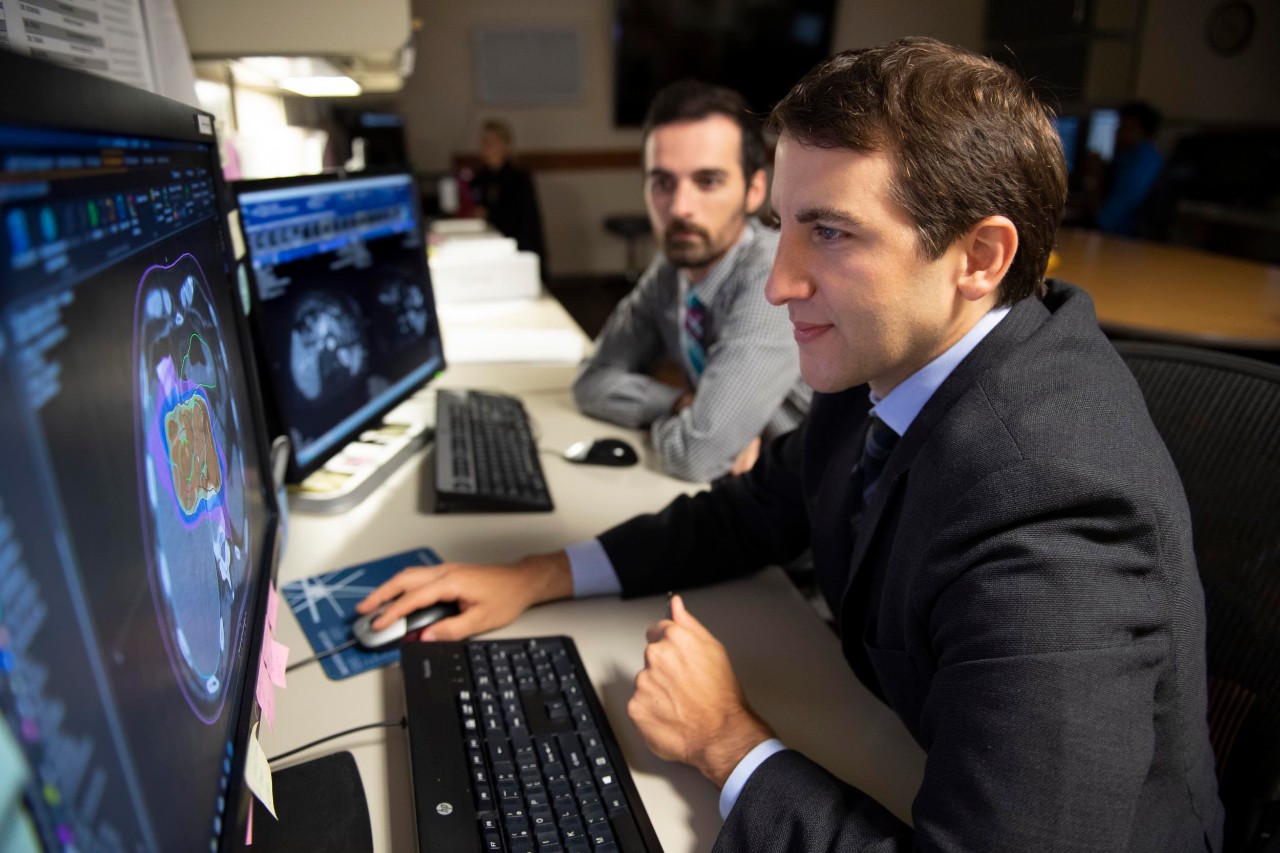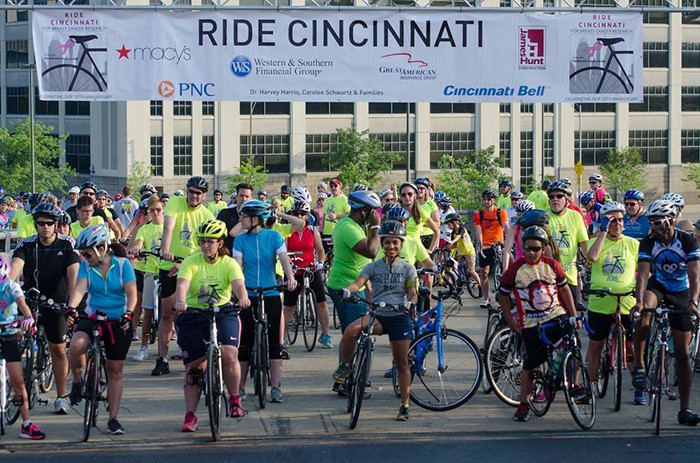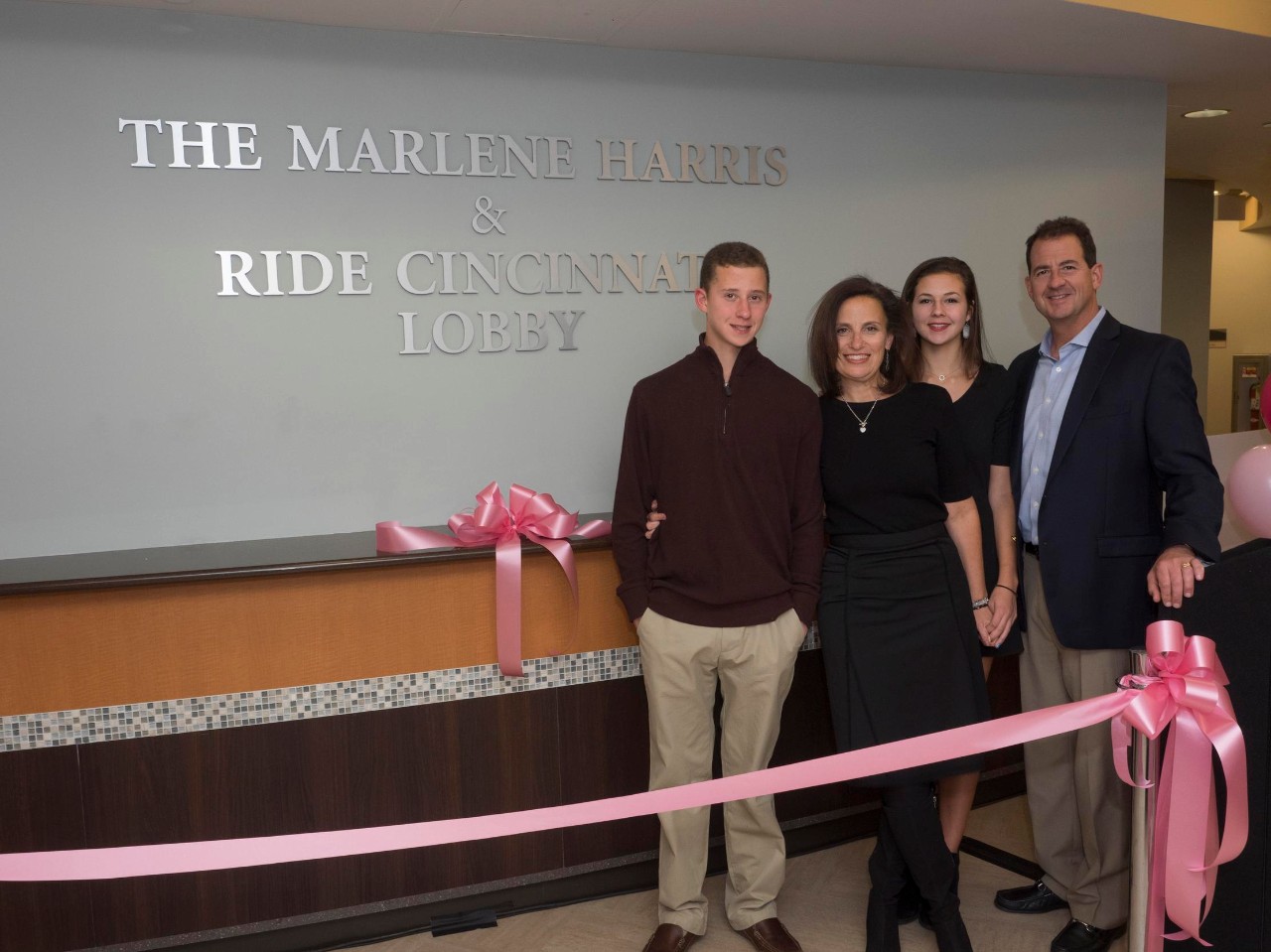For nearly a decade Jordan Kharofa, MD, a physician-scientist at the University of Cincinnati Cancer Center, has been looking at better ways to treat patients with anal cancer, a disease still considered rare though its occurrence is on the rise.
"This is considered one of the most difficult forms of cancer to treat in patients," explains Kharofa, a UC Health physician and associate professor in the UC Department of Radiation Oncology. "The side effects of treatment can greatly impact the quality of life of patients with anal cancer."
Kharofa says physicians usually treat anal cancer with a combination of chemotherapy and radiation during a five-week period. It could lead to side effects that include urinary irritability, cramping, bowel and skin issues, long-term bowel issues, sexual dysfunction, hip fractures and other problems.
The American Cancer Society estimates for 2023 about 9,760 new cases of anal cancer in the United States and 1,870 deaths from the disease.
With financial support from Ride Cincinnati, a grassroots bike organization that raises money for life-saving cancer research and care, Kharofa is leading a clinical trial to improve outcomes and lessen medication side effects from patients with anal cancer. The study will determine whether a lower dose of radiation in a healthy lymph node of an anal cancer patient results in less side effects.

Dr. Jordan Kharofa and Max Richardson at the University of Cincinnati Cancer Center. Photo/Colleen Kelley/UC Marketing + Brand
The study will run up to three years following treatment for individuals enrolled and include cancer patients at four sites: UC, Ohio State University, Case Western University and the University of Vermont.
"Anal cancer is very curable," says Kharofa. "The goal of the treatment is to maximize the body's function as much as possible without the need for a permanent stoma."
Ride Cincinnati is a grassroots bike tour that raises money for life-saving cancer research and care. It will hold a fundraiser to benefit the work of Kharofa and other researchers Sept. 16-17. A kickoff party for Ride Cincinnati's fundraising will happen Saturday, Sept. 16 with activities at The Phelps. Riders will depart downtown Cincinnati on Sunday, Sept. 17, completing routes ranging from 10 miles to 64 miles.
The event has garnered support from UC leadership.
"The money that's generated through this ride can directly impact local cancer research," says Kharofa, who will participate in the event. "The spirit of the ride isn't competition, it's more about raising awareness and crucial funding for cancer research here in Cincinnati."

Ride Cincinnati drews support from participants across Greater Cincinnati. Photo/provided
Kharofa says his most recent clinical trial designed to help anal cancer patients depended on backing from generous supporters like Ride Cincinnati.
"As a researcher at the University of Cincinnati Cancer Center, I feel very fortunate to have funding opportunities made possible by Ride Cincinnati for pilot projects," says Kharofa. "These funds directly impact our ability to generate early-stage research projects and clinical trials that would otherwise not be possible. Our anal cancer trial, funded in part by Ride Cincinnati, has the ability to directly impact our patients in Cincinnati and potentially beyond."
Ride Cincinnati has given more than $4 million in support of cancer research, education and care at the University of Cincinnati Cancer Center, a collaboration between UC, UC Health and Cincinnati Children's. The funds serve as a springboard for researchers to secure additional grants as projects show promise.

The naming of a new lobby at the University of Cincinnati Cancer Center. The Marlene Harris & Ride Cincinnati Lobby is on the 3rd floor of the center. Photo/Jay Yocis/UC Marketing + Brand
Kharofa says incidents of anal cancer have been increasing during the past decade particularly among individuals 50 and older. The cause is still largely unknown though it is likely linked to risk factors such as presence of HPV, HIV infection and diet.
"As part of the clinical trial, we are collecting blood to monitor circulating tumor DNA, which is detected in the bloodstream with active cancer," says Kharofa. "The hope is that we will be able to tailor radiation dose and chemotherapy treatments in the future based on how the tumor is responding."






